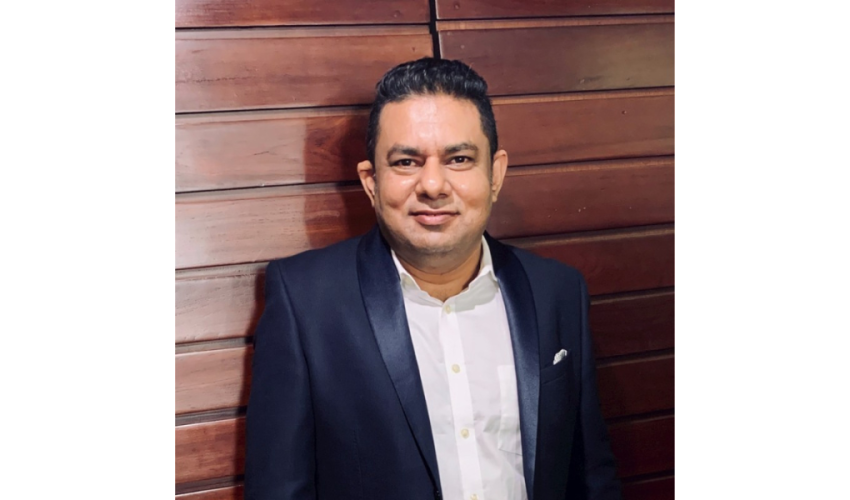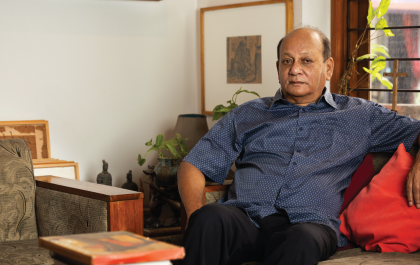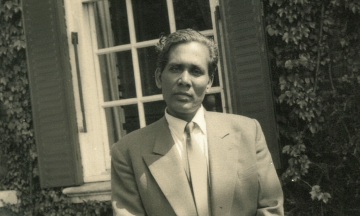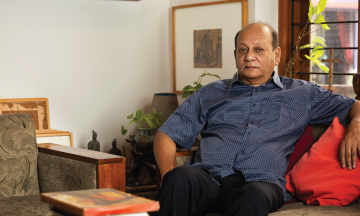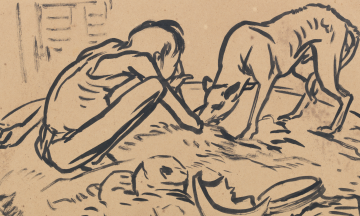Ahasan Khundker, General Manager at Vini International Operation (Bangladesh, Nepal, and Myanmar, shares stories of his career
By MWB Desk
Ahasan Khundker is a veteran in the FMCG industry. The London College of Management Research graduate started his career at Nestle Bangladesh and has lent his expertise to various industries before entering the fragrance market in 2016, from where he has led three brands to excellence. He recently corresponded with MWB over email to share insights from his career.
What are the main challenges and opportunities for Vini International in the fragrance market of Nepal, Myanmar, and Bangladesh?
Navigating the fragrance market in different countries presents distinct challenges and opportunities. When we compare Nepal and Myanmar to Bangladesh, it becomes evident that each country has its unique dynamics.
In Bangladesh, the fragrance market exhibits substantial room for growth, with a mere 5% penetration rate. This represents a significant opportunity for Vini International to expand the category. Our current strategy revolves around introducing quality fragrances at affordable prices and ensuring widespread distribution. However, the primary challenge lies in raising awareness among consumers about the benefits of incorporating fragrance into their daily hygiene routine, especially in these humid climates.
In essence, while Nepal and Myanmar offer their own set of challenges and opportunities, it is in Bangladesh that we see the potential for substantial category growth. Our commitment to delivering quality products and an effective distribution network will play a pivotal role in overcoming challenges and seizing the untapped market potential.
How did you manage to lead FOGG to become the market leader in the branded fragrance segment in these countries?
Our journey to make FOGG the market leader in branded fragrances in these countries was driven by three core principles. We focused on offering top-notch, long-lasting fragrances with our NO GAS formula, ensuring quality that stood out. Affordability was crucial, making premium scents accessible to all. Finally, our extensive country-wide distribution network made FOGG products readily available, even in remote areas. These three pillars formed the foundation of our success, propelling FOGG to its current position as the market leader in branded fragrances.
How did the pandemic impact the sales and distribution of Vini products and what strategies did you adopt to cope with the situation?
The Covid-19 pandemic posed unique challenges to the sales and distribution of Vini products, primarily categorized as luxury FMCG goods. The lockdowns and restrictions imposed during the pandemic limited consumer mobility significantly. With educational institutions and offices moving to online modes, the traditional sales and distribution channels were inevitably impacted. To address this situation, we promptly implemented a series of adaptive strategies.
Firstly, we expanded our presence on e-commerce platforms, recognizing the growing importance of online shopping. This allowed consumers to conveniently access and purchase our products from the safety of their homes.
Secondly, we intensified our digital marketing efforts, employing targeted advertising, social media engagement, and influencer collaborations to maintain brand visibility. Additionally, strategic partnerships with delivery services were explored to ensure efficient and safe product deliveries. We also continued to innovate, introducing new products and packaging to cater to evolving consumer needs during the pandemic.
Lastly, to keep our consumers engaged, we initiated virtual events and engagement campaigns, fostering a sense of community during a time of physical isolation. These proactive measures allowed us to navigate the pandemic’s challenges effectively, ensuring uninterrupted access to Vini products despite the disruptions caused by Covid-19.
How do you balance the trade-offs between standardization and customization of Vini products across different markets and cultures?
Balancing the standardization and customization of Vini products across diverse markets and cultures is a meticulous process. We prioritize local preferences and needs while staying true to our brand essence. Key considerations include adapting to local climate and weather, aligning with cultural food habits, offering varied pack sizes for portability, and ensuring affordability based on local price indices. At the core, our products aim to make people look good, feel good, and smell good, a universal desire that transcends cultural boundaries. By carefully addressing these factors, Vini products resonate with consumers globally, acknowledging and embracing local nuances while maintaining our brand’s integrity.
What are the future plans and goals of Vini International and Vini Cosmetics in terms of product innovation, market expansion, and social responsibility?
Vini International and Vini Cosmetics have clear future plans and goals. We are dedicated to continuous product innovation, with a focus on sustainability and meeting evolving consumer needs. Expanding our market presence is a priority, both nationally and internationally, by entering new regions and strengthening our distribution networks. Equally important is our commitment to social responsibility, which includes initiatives to generate employment through manufacturing and sharing revenue with the government to support social welfare programs. In essence, our vision encompasses innovation, market expansion, and making a meaningful societal impact.
How do you motivate and develop your team members and what are the key skills and competencies you look for in them?
At Vini International, we place a paramount emphasis on motivating and developing our team members. Our approach involves granting team members the authority and ownership of their roles, empowering them to take initiative, and make impactful decisions. We firmly believe in the principle of having the right people in the right positions, ensuring that each team member can leverage their strengths and contribute effectively to our collective goals. Central to our culture is the pursuit of ownership and commitment from our team, fostering a sense of accountability and unwavering dedication.
In terms of the key skills and competencies we seek in our team members, ownership is a foundational quality we prioritize. Those who take ownership are more likely to drive projects to success. Additionally, a strong commitment to their work and alignment with our organization’s goals are paramount, as they fuel sustained effort and dedication. We also value effective communication skills, adaptability, and a willingness to collaborate, considering these attributes as essential components of a successful team member’s profile.
How do you keep yourself updated with the latest trends and developments in the FMCG industry and what are some of the sources or platforms you use?
Remaining well-informed about the most recent trends and advancements in the FMCG industry is a fundamental aspect of our strategy. We primarily leverage online resources and platforms to access up-to-the-minute information. Collaborations with e-commerce entities offer valuable insights into market dynamics. Additionally, consumer activation and engagement initiatives serve as effective channels for gauging industry shifts and consumer preferences, enabling us to remain agile and responsive to evolving trends.
What are some of the best practices or learnings from your previous experiences at Nestle Bangladesh and PRAN-RFL Group that you have applied or adapted at Vini International?
My experiences at Nestle Bangladesh and PRAN-RFL Group have been instrumental in shaping my approach at Vini International. I’ve learned that two critical factors are the backbone of any successful venture: Unwavering commitment to product quality and a profound understanding of the customer. These experiences have underscored the importance of consistency and trust in building lasting brands. Moreover, I’ve adopted a customer-centric mindset, focusing on empathizing with and addressing their needs. My journey has also emphasized the significance of efficient supply chain management and distribution networks, which I’ve seamlessly integrated into our operations at Vini International, ensuring our products reach customers promptly and reliably.
What are some of the personal or professional values or principles that guide your decision-making and leadership style?
In both my personal and professional life, a few core values and principles serve as my compass. Firstly, integrity and honesty are non-negotiable. Upholding ethical conduct and transparency is paramount to me; it fosters trust, both within the team and with our stakeholders. Secondly, resilience and adaptability are values I hold dear. Life, especially in the business world, is filled with unexpected challenges. I believe in embracing these challenges as opportunities for growth and learning. Additionally, empathy and a people-centric approach underpin my leadership style. Understanding the needs and aspirations of my team members and colleagues allows me to lead with empathy and create a supportive work environment. Lastly, a relentless pursuit of excellence drives me to continuously improve and innovate. It’s these values that shape my decision-making and leadership, allowing me to navigate the complexities of the business world while staying true to myself.
MWB Desk
- MWB Desk
- MWB Desk
- MWB Desk
- MWB Desk
- MWB Desk
- MWB Desk
- MWB Desk
- MWB Desk
- MWB Desk




